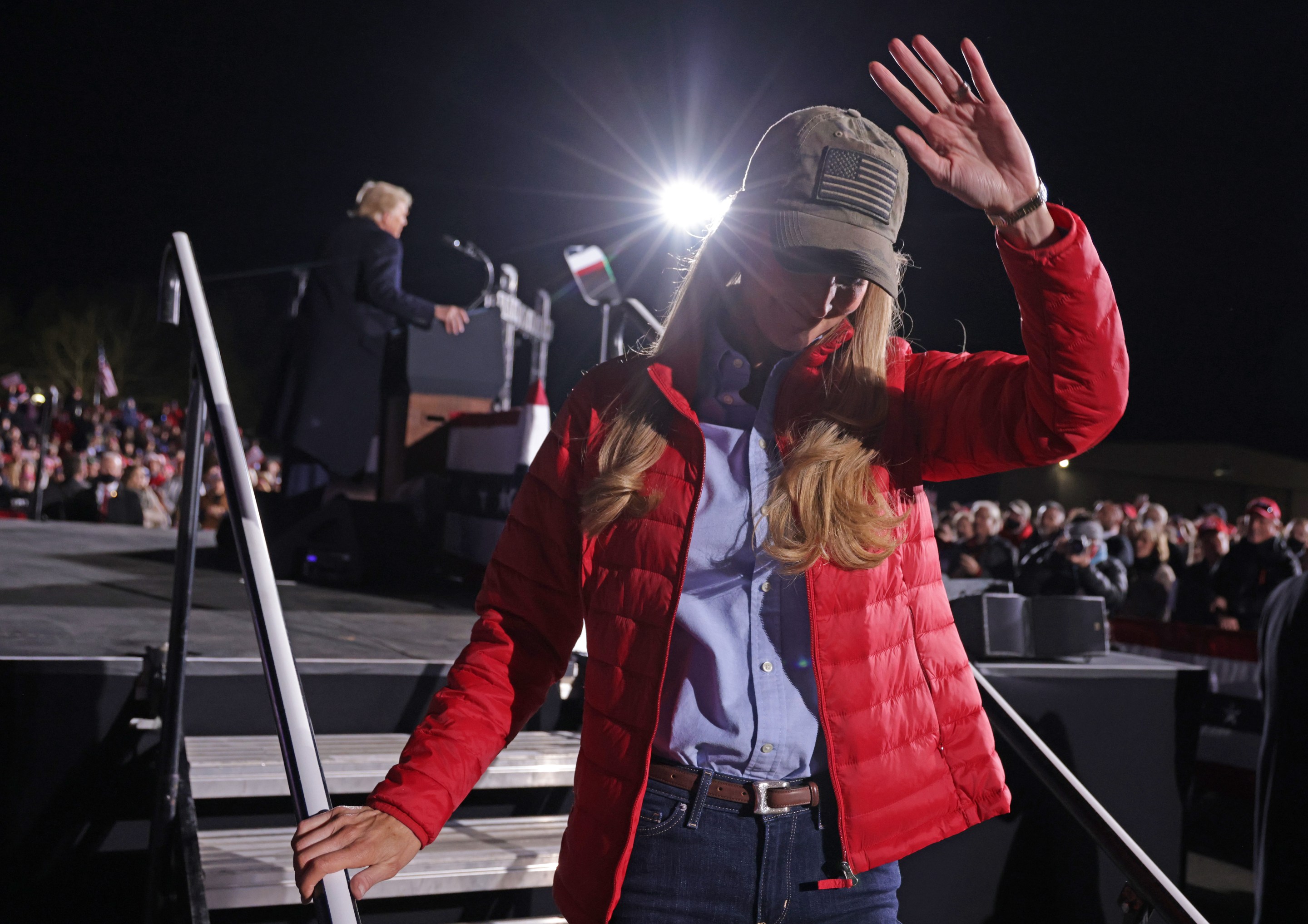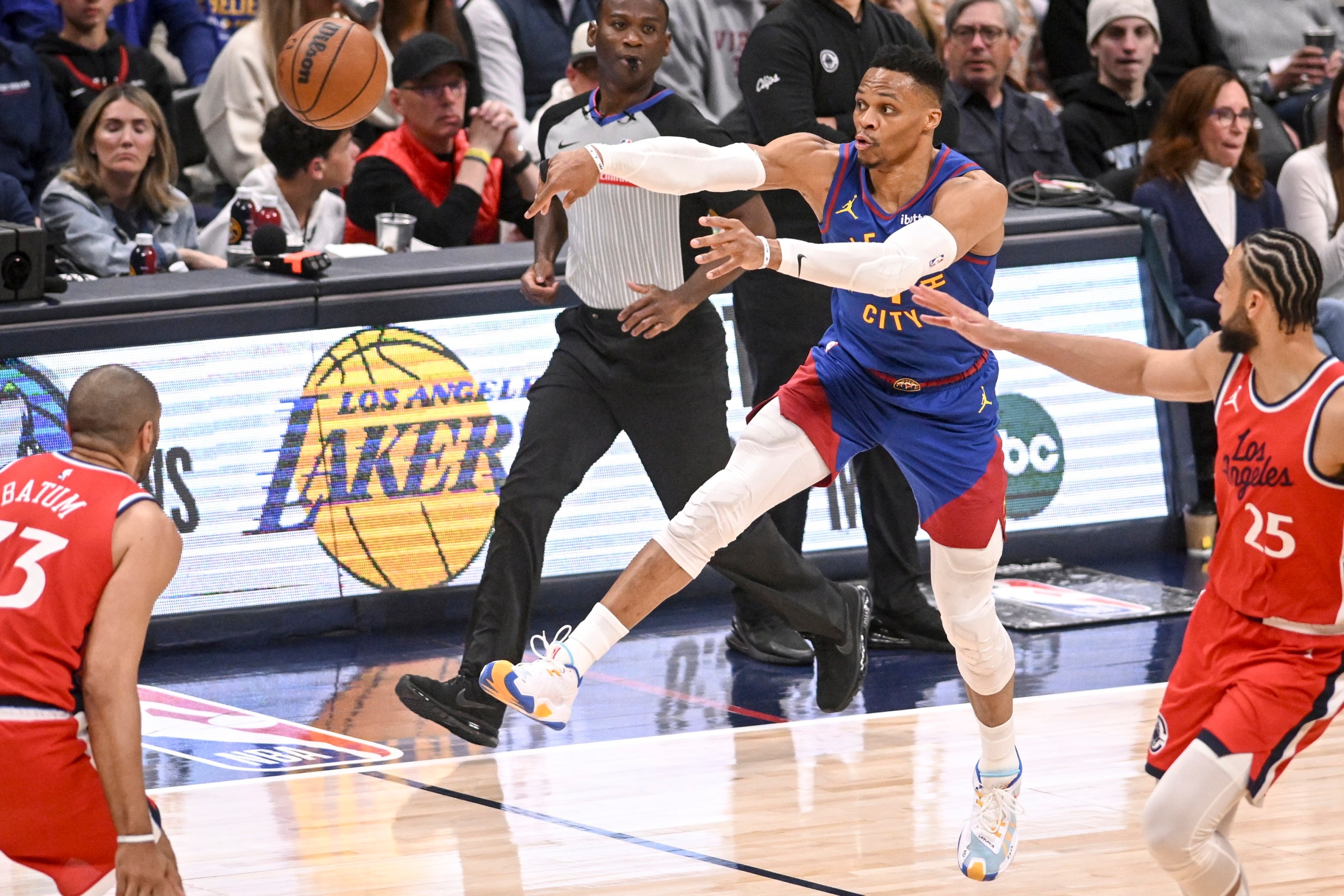Kelly Loeffler, the soon-to-be-former U.S. Senator from Georgia, ran a vile and insulting campaign made more vile and insulting by her obvious disinterest in it. She spoke the bigoted language of a zealot but lacked any zeal. She (Illinois-educated, Romney-loving billionaire) inhabited her character (flannel-wearing, down-home Trump sycophant) so poorly, the performance would prompt a “Once more, with feeling!” from even the most forgiving high school drama director. The Loeffler campaign, in its belief that her potential voters were stupid, was not unlike that old sitcom trope—the Georgian electorate walked in the room to find the candidate finishing up her, uh, yes, 99th and 100th pushups. And did you see her on the trail in that suspiciously new-looking UGA hat? Loeffler forgot, like Carly Fiorina before her, that what unites college football fans and voters of every stripe is intense disdain for the bandwagoner.
Georgia, get out and VOTE! 🇺🇸https://t.co/PRrt5xe8mQ #gapol #gasen pic.twitter.com/tXo3ZGjdip
— Kelly Loeffler (@KLoeffler) December 31, 2020
It's one thing to put on a bad show; it's another thing to cast people in it without their permission. This half of the Georgia Senate races became the most intriguing story in sports this summer, when Loeffler, a co-owner of the WNBA's Atlanta Dream, wrote a letter to the WNBA's commissioner complaining that the league's endorsement of Black Lives Matter and the players' dedication of the season to Breonna Taylor's memory represented a "message of exclusion" in supporting an organization that "promoted violence and destruction across the country." Players on the Dream and across the league responded to being treated as political foils by researching Loeffler's opponents and choosing to endorse the Rev. Raphael Warnock, whose victory in Tuesday's runoff election the AP called Wednesday morning. Players wore "Vote Warnock" on pre-game shirts in August, when Warnock was polling in the single digits, and a two-Republican runoff election seemed imminent, but in the end, he prevailed. (One political science researcher, using fundraising data, says Warnock owes his campaign's success to the WNBA players' intervention at that moment, though that sort of variable is tricky to isolate.)
Did the WNBA win this election, swing the Senate, and save America? Sure, if you like irresistible, digestible platitudes that travel well on social media, but that's a fairly myopic way of interpreting a movement that long predates the "Vote Warnock" shirts and will long outlast them. Georgia has too craggy and fraught a political history for a win there to belong neatly to any one person or group or moment in time. The race was won in splashy ways, yes, but it was mostly won unglamorously and undramatically. It was won by the likes of Malika Redmond, an organizer whose get-out-the-vote framework centers reproductive justice; Mijente, the group that reached every Latino voter in the state in the weeks leading up to the election; Nsé Ufot, head of the New Georgia Project, which has registered over half a million new voters since 2014; and a thousand others who recognize their efforts not in service of a discrete event but as part of a lineage, one that includes—and they all bring him up—the late John Lewis, whose biography is a story of the relative newness and fragility of suffrage. “Democracy is not a state. It is an act,” he wrote in his final essay, published posthumously in the New York Times in July. He thought it better to think in work rather than wins, verbs rather than nouns.
That isn’t to dismiss the Dream players or the radical beauty of their maneuver. (It's not their fault that the American political project doesn't lend itself to one-fell-swoop "saving.") On the contrary: Their campaign on Warnock's behalf was a verb—a new, crackling mode of agitation—that should prove to any athlete and to any would-be-agitator that there is real power in the risky and subversive forms of activism unsanctioned by higher-ups. They ask everyone to imagine whether our world wouldn’t be much, much better if everyone were unafraid to tell their shitty boss to go to hell.
There has never been a loser so deserving of the description as Loeffler, who still has never actually won an election in her life, and no quantity of insults hurled at her will quite be enough. But I’m a sports blogger, and in my line of work is the grand tradition of waving aside the vanquished and extolling the victor, so a few words on him. Raphael Warnock, when the results are certified and he is sworn in, will be Georgia's first black senator, and just the second black senator from the South post-Reconstruction. He plans to return to Atlanta on weekends to continue preaching at the Ebenezer Baptist Church, where he is senior pastor. (Sorry, one more mention of Loeffler. A recurring sign of her campaign's fundamental emptiness was that many of her "attacks" on Warnock—clips of his sermons against police brutality and capitalist greed—only served to make him look obviously cooler.) In Warnock's live-streamed victory speech was a quick five-minute flash of everything his opponent lacked: true empathy; jolly affection for Georgia; a clear sketch of the experiences formative to his politics that suggests he is in public service for something other than the stock tips; and best of all, conviction.






